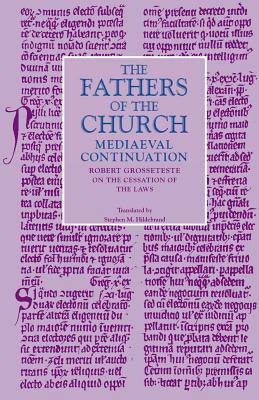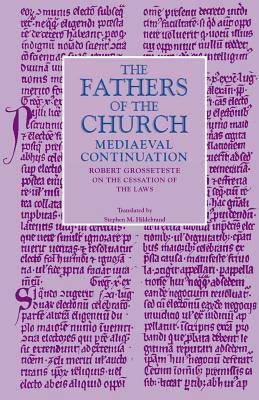
- Afhalen na 1 uur in een winkel met voorraad
- Gratis thuislevering in België vanaf € 30
- Ruim aanbod met 7 miljoen producten
- Afhalen na 1 uur in een winkel met voorraad
- Gratis thuislevering in België vanaf € 30
- Ruim aanbod met 7 miljoen producten
Zoeken
Omschrijving
Robert Grosseteste was an unusual and exceptional man: from the lowest social class yet greatly admired by kings and popes; a scientist but also a philosopher and theologian; a talented administrator and a successful teacher; a pastor doggedly devoted to the care of his flock but also a scholar dedicated to the translation of early Christian fathers and Aristotle; loyal to the pope but fearless and bold in calling for the reform of the curia. On the Cessation of the Laws directly reflects the profundity and originality of Grosseteste's theological work and indirectly reveals his pastoral concerns. The work consists of four books. In the first, Grosseteste offers arguments mostly from Scripture against the position that he wishes to defend and then counters these arguments with a lengthy treatment of the whole economy of creation and salvation and the place of the Scriptures, Old and New, in it. The second attempts to show from clear Old Testament texts that the crucified Jesus was the savior promised in the Law. The third is dominated by theological arguments for the incarnation of Christ even if humanity had not sinned, and the fourth addresses a cluster of questions that follow upon the death of the Law. In On the Cessation of the Laws, Grosseteste draws out the theological, christological, and soteriological issues implicit in the question of the relationship between the Old and New Covenants.
Specificaties
Betrokkenen
- Auteur(s):
- Uitgeverij:
Inhoud
- Aantal bladzijden:
- 260
- Taal:
- Engels
- Reeks:
Eigenschappen
- Productcode (EAN):
- 9780813228211
- Verschijningsdatum:
- 1/04/2012
- Uitvoering:
- Paperback
- Formaat:
- Trade paperback (VS)
- Afmetingen:
- 140 mm x 216 mm
- Gewicht:
- 353 g

Alleen bij Standaard Boekhandel
+ 145 punten op je klantenkaart van Standaard Boekhandel
Beoordelingen
We publiceren alleen reviews die voldoen aan de voorwaarden voor reviews. Bekijk onze voorwaarden voor reviews.











